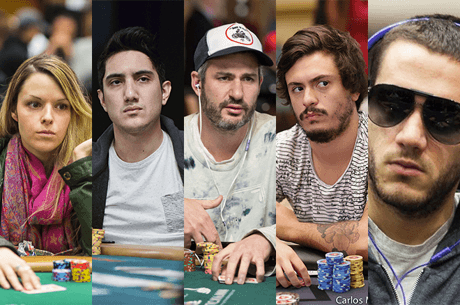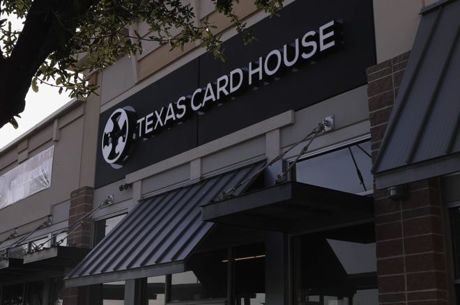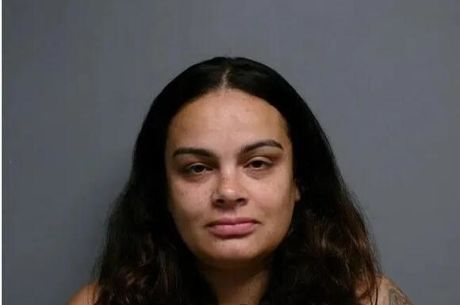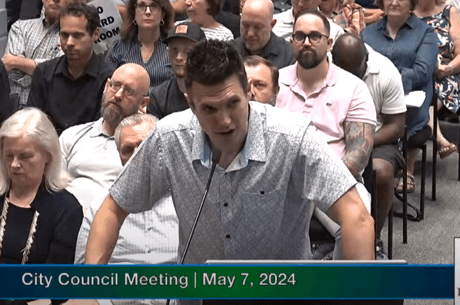AG Offers No Opinion on Texas Poker Clubs, Lawsuit Continues
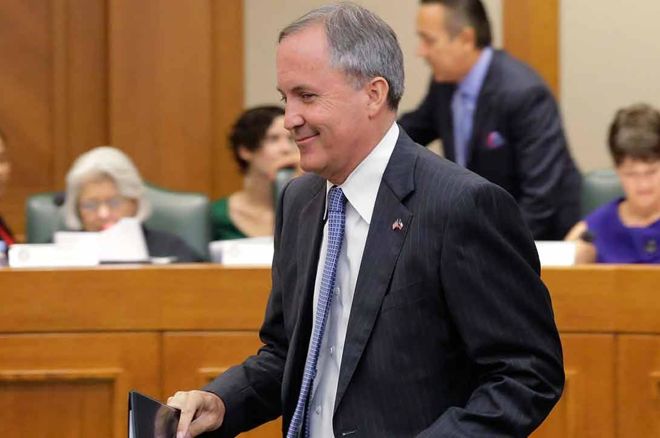
The legality of poker rooms in Texas took another turn last week with the office of Texas Attorney General Ken Paxton (pictured) declining to issue an opinion on the legality of the increasing number of poker clubs in the state. Instead, his office has decided to let courts decide as a lawsuit plays out between two Austin and San Antonio clubs.
��Our agency has a longstanding policy of not issuing an opinion on an issue we know to be the subject of pending litigation,�� a spokesperson for Paxton��s office told KHOU.com.
The decision leaves in place a growing number of poker clubs throughout the state using similar business models, and with local law enforcement and district attorneys determining the clubs legality. Most charge a seat fee, club memberships, or hourly rates with no house table rake. The rooms have grown in Houston, San Antonio, and Austin, but others in the Dallas-FortWorth area closed after warnings from local law enforcement.
In the lawsuit, an Austin club argues that a San Antonio club operates under a model that doesn��t meet with state law and also seeks a clarification from the court for a decision regarding the legality of poker rooms that charge entry, time-based, and seat fees.
The decision by Paxton��s office still leaves some legal limbo in place. In January, State Rep. Geanie Morrison (R-Victoria) asked Paxton��s office to weigh in on the clubs�� legality. According to Texas law poker is only allowed under a few caveats:
- gambling must be in a private place.
- no person received economic benefits other than personal winnings.
- except for the advantage of skill or luck, the risks of losing and the chances of winning were the same for all participants.
Poker club operators argue that their membership models meet that criteria, in essence operating in the same manner as golf country club. Players pay a fee and then play poker instead of golf, with the clubs themselves only deriving revenue from memberships and hourly fees to make use of the facility.
Freerolls Poker Clubs: "We are pleased that the attorney general of Texas opted to let the current lawsuit play out.��
Others have argued that the clubs are still deriving revenue based solely on gambling and that is still illegal under state law.
The clubs have grown so much that even two poker tours have plans to bring some action to the Lone Star State for Texas��s first major tournament stops. The Card Player Poker Tour is scheduled to play the Lone Star State Poker Championship July 30 �C Aug. 5 with six planned tournaments at the Post Oak Poker Club in Houston.
Houston city councilman Greg Travis has been a vocal critic of the clubs and was disappointed that Paxton��s office didn��t offer a more clear directive on the venues. The Post Oak Poker Club lies within Travis��s Houston district.
��It��s either legal or it��s illegal, regardless of what lawsuits there are,�� Travis told KHOU.com.
The Freerolls Poker Club, also in Houston, will be hosting a $1,000 buy-in WPTDeepStacks event Sept. 26 �C Oct. 1, and club organizers don��t see the recent decision from the attorney general as any reason to alter those plans.
��The WPTDeepStacks is 100 percent on,�� says Trent Daniel, club co-founder and business development director. ��While we have never been worried about the legality of the FreeRolls business model, of course, we are pleased that the attorney general of Texas opted to let the current lawsuit play out.��
To play at the FreeRolls, all players must become a member through a daily, monthly, or annual membership. The club adds to its revenue with ��in-table�� advertising portals on seven-inch touchscreen devices that will show various ads. Daniel believes clubs fees like seat rentals may move clubs into illegality but believes that will be settled in the lawsuit.
��One of the most encouraging factors for FreeRolls is that the basis of the lawsuit stems from clubs charging seat rental or time charges at the poker table,�� he says. ��FreeRolls has always maintained a policy of strict complete adherence to Texas law, and we have felt that the seat rentals and time charges could be legally problematic. This lawsuit seems to validate our interpretation of the law.��
Time will tell if Daniel��s view will win out or if seat fees can still be charged and meet the criteria set out in the state��s gambling statutes. If the clubs indeed remain legal, Texas offers a big opportunity for major poker tours as WPTDeepStacks executive director Chris Torina told PokerNews in March.
��Anytime you enter a market for the first time, especially as a pioneer, it's a big deal,�� Torina said. ��It's exciting. We can bring our brand to an emerging market and to the doorstep of so many poker players, fans, and enthusiasts��
Texas is the country��s second most-populous state with more than 26 million people and a large number of poker players. The state claims several World Series of Poker champions and the state��s players were crucial in the founding of the event. While a WSOP-Texas event may not be in the immediate future, many players in the Lone Star State hope the attorney general��s decision keeps the cards being dealt.
Sean Chaffin is a freelance writer in Crandall, Texas. His work appears in numerous websites and publications. Follow him on Twitter @PokerTraditions. He is also the host of the True Gambling Stories podcast, available on iTunes, Google Play, TuneIn Radio, Spotify, Stitcher, PokerNews.com, HoldemRadio.com, and TrueGamblingStories.com.
Photo ABC13


